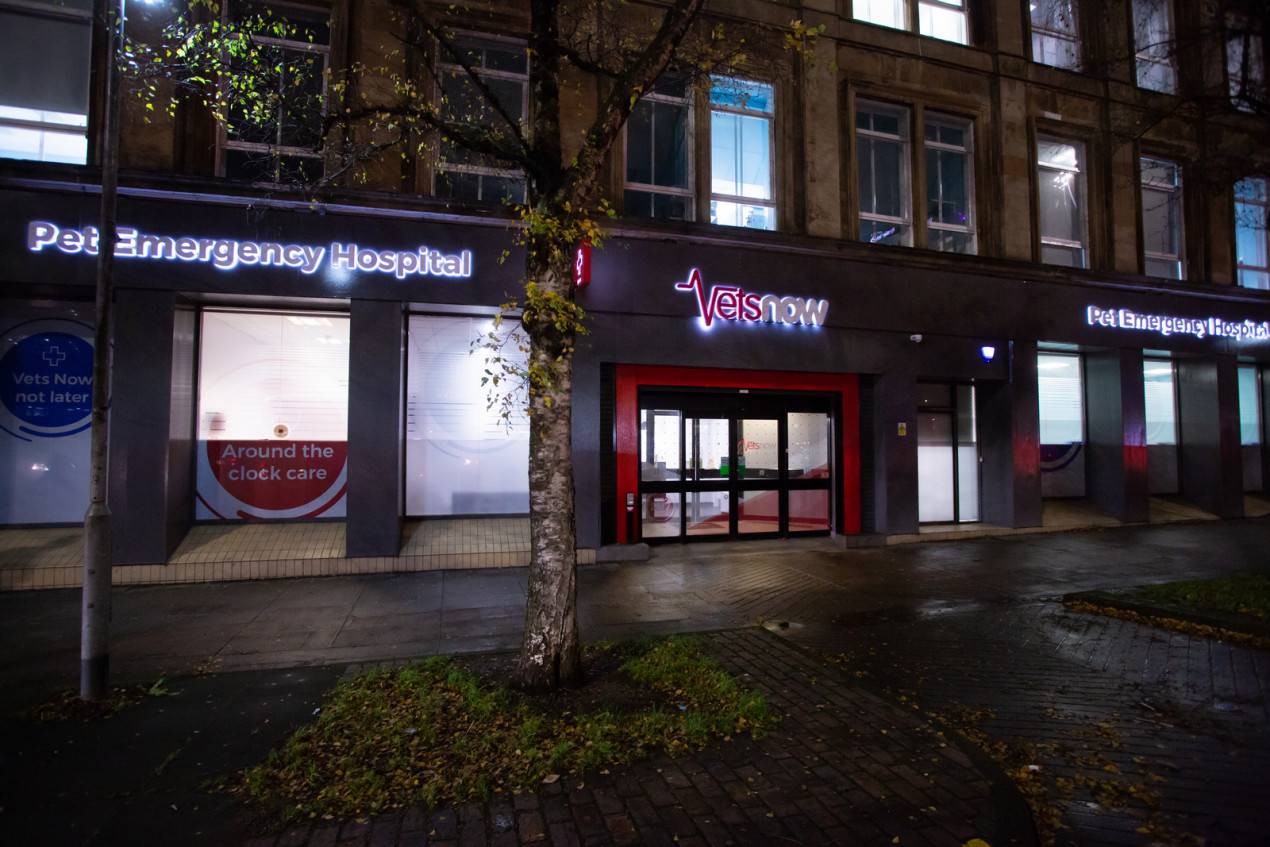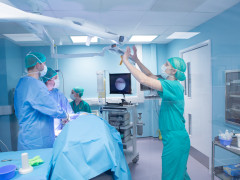Surgical specialist Ana says supportive culture makes Vets Now Glasgow a special place to work
Ana Marques is dedicated to advancing her skills and being at the forefront of her profession as a specialist surgeon – a role which she has been destined for since childhood.
Originally from Porto in Portugal, Ana spent several years as a lecturer in small animal surgery at the University of Edinburgh before joining the team at Vets Now’s 24/7 emergency and speciality hospital in Glasgow earlier this year.
Here, Ana explains why she made the move to Vets Now, what she wants to get out of her role and how she hopes her skills can benefit both colleagues and clients.
Tell me about your career to date and how you ended up at Vets Now?
I started doing a surgical internship in Manchester back in 2003 then I started a residency programme at the University of Edinburgh in 2005. I was invited to stay on as a lecturer in small animal surgery at the University of Edinburgh and I stayed there until I decided to move on to Vets Now earlier this year.
What are your main clinical interests?
My main clinic interest is soft tissue surgery. I’m also interested in minimally invasive surgery and I’ve also done a lot of training in the area of interventional radiology procedures, which has advanced quite a lot over the last 5-6 years in the veterinary world.
Why did you decide to join Vets Now in Glasgow?
I was looking for a job that would allow me to have a good quality of life without compromising career advancement and my clinical skills. Vets Now really offered me that and that’s why I joined the team.
What enticed you to become a specialist surgeon?
Ever since I was young I’ve felt the need to fix things and surgery is one of those disciplines where you can see instant results. Over time, I decided I wanted to advance my skills and be the best I could be in the field I’m so passionate about. That led me to the residency programme where I worked with a lot of talented people, and that eventually brought me here. The hard work was all worth it and the advancement never stops.
What makes up your caseload?
Around half of my cases are referrals and the other half come through our emergency line, where animals are in a life or death situation and need immediate attention. Those are often the most difficult ones to help but also the most satisfying because you see instant results.
What do you enjoy most about your job?
The contact with the animals and clients and having the ability to help animals and make a difference.
What makes the hospital in Glasgow a special place to work?
The hospital has just expanded and the facilities are excellent. It’s a relatively big team and there is lots of support from other sources, like the ECC team, medicine clinicians and oncology, to maximise the success of your caseload. That’s very important because, as a soft tissue referral surgeon, much of my success is down to the support I receive from other services, both before surgery and post-operatively.
It’s also great to work in a place where everyone is so friendly. I think it’s a supportive environment for more junior members of staff and that’s really good to see. My ethos is to treat people equally, so I really like that about the hospital.
What is your biggest achievement?
My contribution to the area of interventional radiology where I introduced some new procedures at the University of Edinburgh. I’m keen to continue expanding the interventional radiology service at the Glasgow hospital.
You were a senior lecturer at Edinburgh University, what do you think of the mentoring culture at Vets Now?
I was very pleasantly surprised to see that we can still teach here as we teach interns and residents. It’s great to be able to continue with that as I feel that if you have skills you have an obligation to pass them on.
I’ve been doing a lot of CPD around the country in the area of soft tissue surgery and of course Vets Now offer lots of CPD too, so I’ll probably get involved in that in due course.
Do you think it is a good idea to specialise or not?
It really depends on what someone wants from their life. It’s actually very difficult to be a general practitioner because you have to know a lot about a wide range of different diseases. The beauty of becoming a specialist is having the opportunity to perform procedures that can only be done by those with the necessary skills, as well as offering clients and pets a different level of care than would otherwise be possible. There’s no right or wrong, it really depends what someone wants from their career.
What are your ambitions?
I want to continue to expand the interventional radiology service and perhaps look at some more minimally invasive procedures and how we can adapt that to day-to-day basis practice. Other than that, I want to just continue building up the caseload and continue to help animals.
If you could give one piece of advice to veterinary undergraduates today, what would it be?
Be passionate about what you want to do and don’t give up. It’s a really difficult road but don’t be discouraged if you get a no once or twice, you have to be resilient and believe in yourself.
How do you think our partner practices will benefit from your experience?
In a referrals world, you’re often the client’s last hope for a very complex condition so I hope our partner practices will benefit from the skills I’ve gained over the years, and my ability to empathise with clients and their pets.
But I’m also available to offer advice. It’s not always possible to refer cases and it can be helpful for vets to pick up the phone and speak to a friendly voice that can potentially offer some guidance.
I’m hopeful that we can establish that sort of positive relationship.





